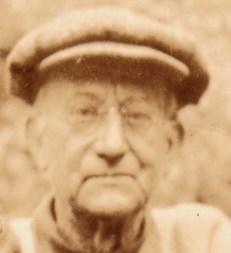Michael Powell: article published in 2007 and entitled “Fragile Identities: The Colonial Consequences of CJR Le Mesurier in Ceylon”
ABSTRACT of Article: In the many layered life of CJR Le Mesurier in Ceylon are themes that repeat and recur throughout the British colonial world, touching on marriage and morals, religion and race, archival retention and colonial employment.

Cecil Le Mesurier in Western Australia c 1920s …. Courtesy of Rod Cantley
In particular, his strenuous litigious attack on assumptions of Crown title challenged the philosophic and legal framework of colonial land policy, revealing its ideological foundation, and illuminating the pattern and impulse of land policy throughout Empire.
The increasing effrontery of his actions induces an equally escalating reaction from colonial authority that pares away the preferred patina of civilizing mission to reveal a far more base intent – a colonial impulse more discernible and the actions of authority more disclosing – contributing to a much richer comparative understanding of the dynamics of colonial land dealings.
Continue reading →
Like this:
Like Loading...














